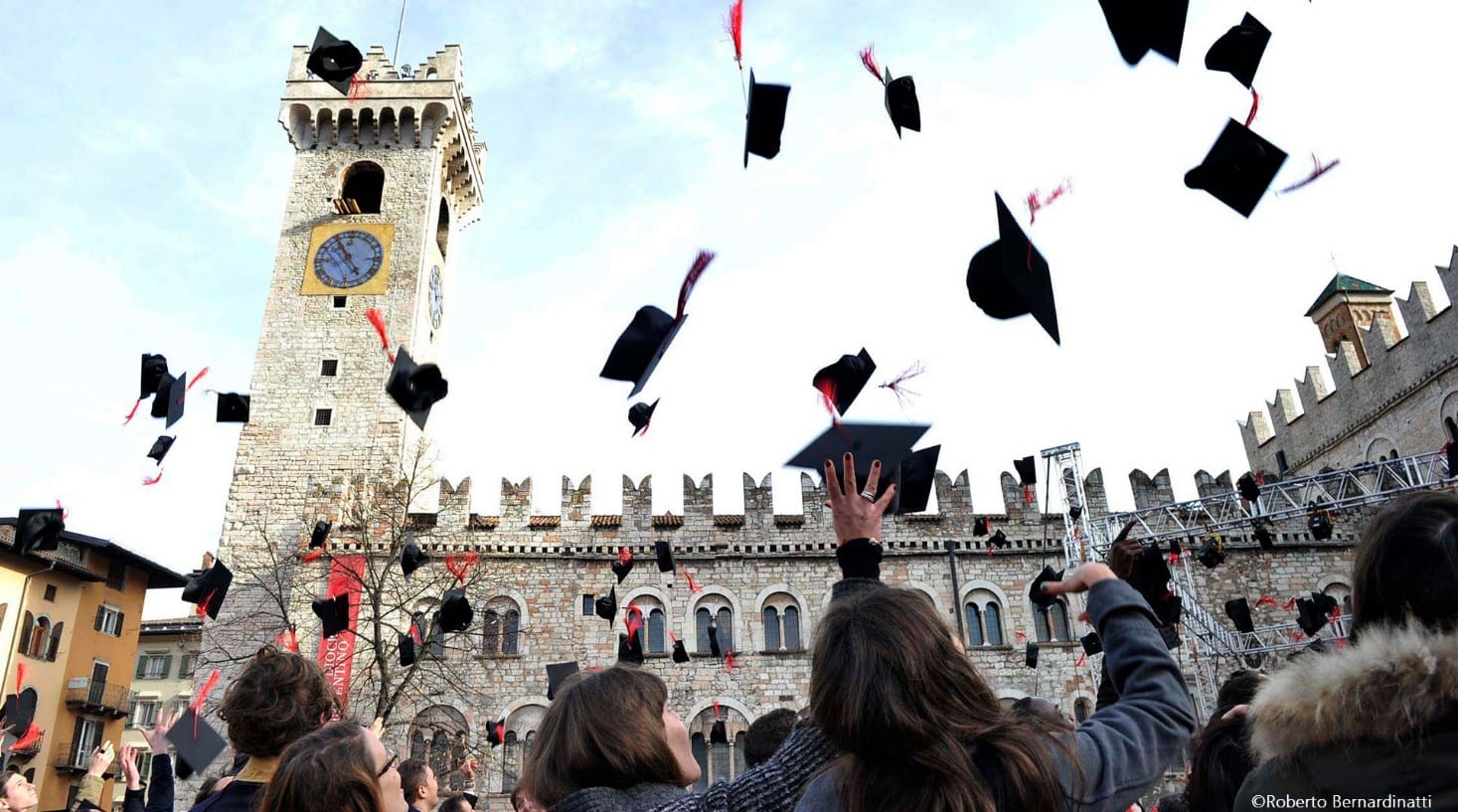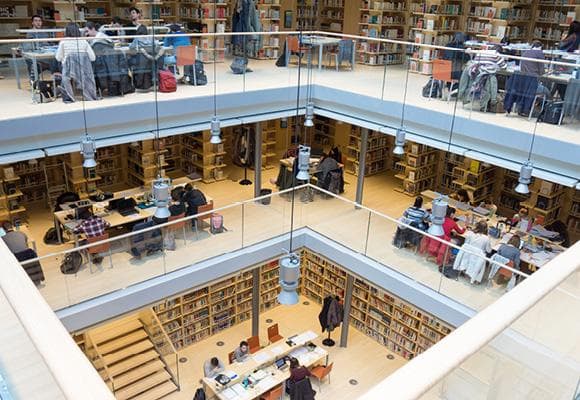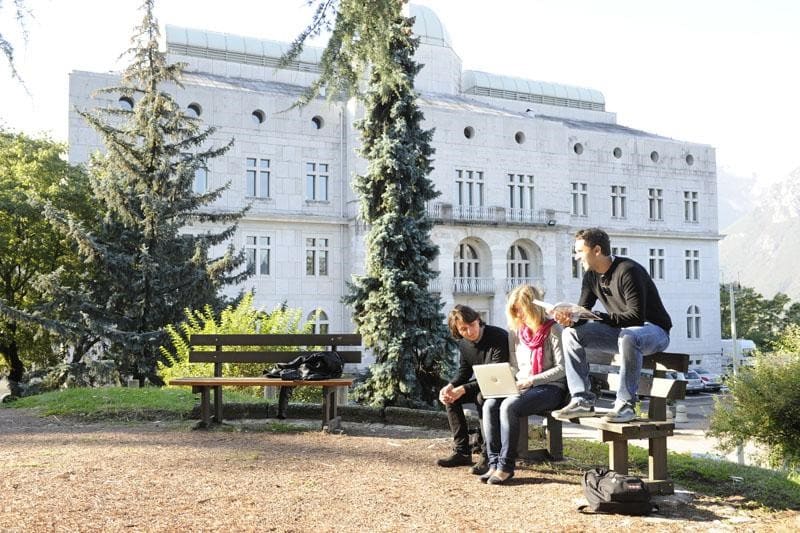
MSc in Computer Science
University of Trento

Key Information
Campus location
Trento, Italy
Languages
English
Study format
On-Campus
Duration
2 years
Pace
Full time
Tuition fees
EUR 6,500 / per year **
Application deadline
Request info *
Earliest start date
Sep 2024
* for non-EU citizens living outside Italy. From April 12, 2024, to July 1, 2024, for EU citizens and non-EU citizens with fiscal residence in Italy| From July 24, 2024 to August 26, 2024 for EU citizens and non-EU citizens with fiscal residence in Italy
** EU 340€-3400€ (fee range based on personal income and merit); Non-EU: 1000€-6500€ (fee range based on merit only, i.e. score in the application evaluation)
Introduction
The Master of Science in Computer Science foresees the acquisition of knowledge, methodologies, and specialized computer technologies which will allow the graduate student to plan, design, develop, estimate, and manage complex innovative systems for the production, transmission, and processing of information.
The goal of the Master of Science in Computer Science is to train people to get to know the basic theoretical principles of the computer sciences, to be able to acquire specific knowledge in the macro-areas close to software technologies, systems and networks, multimedia, embedded systems, safety, and security engineering.
A strong drive toward Internationalization is one of the key factors that distinguish Computer Science at UniTrento: all Master's Degree courses are taught in English, 20% of our teaching staff comes from abroad and about 40% of the Master's Degree students are foreigners. The reason behind it is simple: to be a Computer Science professional today means to be confronted and to be working in a global market where the English language is fundamental. From the students’ point of view, taking part in an international environment from the start allows them to face global problems and cultural issues right from the beginning.
Program Overview
The Computer Science course at the University of Trento offers some specific features, that make it unique compared to similar courses of other Italian Universities; the standards of UniTrento Computer Science courses are comparable to the standards of prestigious European and worldwide universities.
A strong drive toward Internationalization is one of the key factors that distinguish Computer Science at UniTrento. The Computer Science course offers the opportunity to enter the Double Degree Programme in the frame of the EIT Digital Master School; the student will spend one year in Italy and one year at the Partner University and, at the end of the program, he/she will obtain two degrees recognized by both institutions and both countries.
The academic offer is organized into two curricula with different specialization areas:
Curriculum: “Computer Science and Technologies”
Areas:
- Computational Foundations
- Data Science
- Bioinformatics
- Software and Service Architectures
- Systems and Networks
- Cyber Security
Curriculum: “ICT Innovation”
Areas:
- Cyber Security
- Software and Service Architectures
- Data Science
- Embedded Systems
- Finance Technology
- Competitive Manufacturing
- Human-Computer Interaction and Design

Admissions
Curriculum
The Master of Science in Computer Science consists of 120 ECTS. It includes courses on the fundamentals of computer science (networking, the semantics of programming languages, formal languages, and automation, etc.) as well as courses on the selected area of specialization.
Students can complete their studies with “ free choice; courses covering advanced topics in different areas of specialization. Practical training periods in industrial or research laboratories allow the student to apply the gained knowledge and assimilate various aspects linked to professional practice.
This program offers different study paths focused on the following research fields: Data Science, Systems and Networks, Cybersecurity, Computational Foundations, Bioinformatics, Software, and Service Architectures.
The program starts every year in September. The academic year is divided into two semesters: the autumn semester (from September to January) and the spring semester (from February to June). The periods between semesters are dedicated to examinations and holidays.
Awarded Degree
Upon the successful completion of the curriculum and fulfillment of the Master&rsquo's course requirements (120 ECTS), students will be awarded a degree: Master of Science in Computer Science (in Italian - Laurea Magistrale in Informatica).
Credits required to complete the Master’s degree program in Computer Science: 120 ECTS
Notes: According to Sorbonne (1988) and the Bologna (1999) declarations university-level study programs in the European Higher Education Area are structured in university credits (ECTS). A university credit corresponds to 25 hours of student workload, time for personal preparation included. The annual average workload for a full-time student is conventionally fixed at 60 credits.

Efrem Bertini
Scholarships and Funding
Scholarships for non-EU citizens living abroad
Top-scored candidates will be entitled to receive a UniTrento scholarship based on availability. Students who benefit from a UniTrento scholarship will also have their tuition fees waived.
Scholarships for EU Citizens and Non-EU citizens regularly living in Italy (fiscal residence)
Information on the tuition fees and ISEE is available on our website. Please note that if you do not want to calculate the ISEE index (economic index of the financial situation of your family), you will have to pay the maximum amount.
Once the ISEE has been calculated students, if eligible, can apply for the Opera Universitaria scholarship, starting from June/July.

UniTrento Archive
Gallery
Career Opportunities
The objective of the Master of Science in Computer Science is to form professionals and researchers with both theoretical and practical knowledge. Theory and lab classes rotate during all courses of study. That is the reason why Computer Science graduates find a job quickly (two months after ending their studies, if not before - source Almalaurea); this happens not by chance but because Computer Science jobs are on the top 5 list of the most wanted specialists in Italy.
Graduates in Computer Science can enter the workforce by planning, organizing, developing, managing, and maintaining information systems. For the most capable and determined students, in particular, for those who will continue with a doctorate, management careers will become available, because a solid competence in the principles of complexity and problem-solving goes together with the ability to interact, teamwork skills, and innovative solutions. Last but not least, individual capabilities are of maximum importance: computer science is still a field where newly created innovative companies created by enterprising young people, often can top consolidated enterprises on time and quality.
Further Studies
The Master of Science in Computer Science provides the background to access the ICT Doctoral School at UniTrento, and other Ph.D. programs elsewhere in Italy or at the international level.

UniTrento Archive
